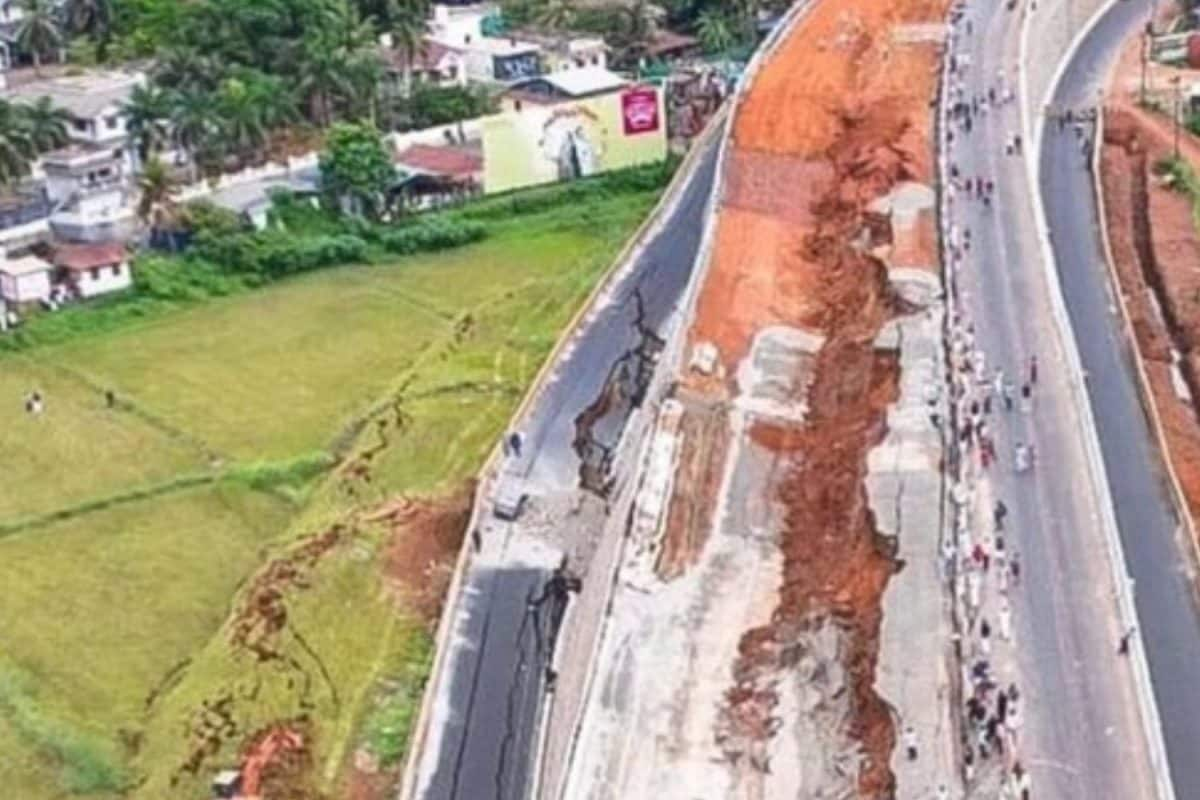

The construction of National Highway 66 (NH-66) has come under intense scrutiny following multiple structural failures, particularly in Kerala. A parliamentary panel has reportedly criticized the Ministry of Road Transport and Highways (MoRTH) for its use of multi-layered sub-contracting, raising concerns about compromised quality and oversight.
Recent incidents, including a collapse in Kooriyad, Malappuram, sidewall failures in Kannur, and a sunken service road in Kasaragod, along with cracks in other sections, have sparked public outrage and prompted investigations. An expert study commissioned by the National Highways Authority of India (NHAI) revealed that several damaged stretches were built in violation of MoRTH specifications. The panel comprised experts from the Central Road Research Institute, Geological Survey of India, and IIT Palakkad.
The expert panel cautioned about the risk of landslides that could cause structural damage and traffic disruptions, urging urgent mitigation measures. They found that none of the construction packages adhered to the prescribed methodology for slope stabilization using soil nailing, as per MoRTH specifications. The panel cited "improper methodology/construction sequence followed for the slope cutting and the soil nailing method” as a key cause of failures. Designs often ignored soil layer properties and groundwater tables. The report recommended comprehensive geotechnical investigations, site-specific geological mapping, slope stability analyses, and foundation engineering studies before making design changes or undertaking remedial works, especially in sensitive terrains.
Critics point to a rush to complete the project, driven by delays and political battles over land acquisition and environmental concerns, leading to compromises in construction. This created a "perfect storm" where contractors, under pressure, consultants potentially rubber-stamped variations, and bureaucrats were eager to declare projects complete for political gains. Locals reported that the area was prone to waterlogging, yet drainage and reinforcement were insufficient.
Following the collapse in Kooriyad, a 200-250 meter stretch of NH-66 that occurred in May 2025, MoRTH blacklisted Andhra Pradesh-based KNR Constructions and consultancy firm Highway Engineering Consultant. Union Road Transport Minister Nathan Gadkari told Parliament that highway development in Kerala costs about ₹100 crore per kilometer, one of the highest in India, due to the dense population and expensive land acquisition.
NHAI has also debarred Megha Engineering and Infrastructure (MEIL) from future national highway projects for a year after probing the collapse on NH-66 in Kerala. The incident was caused by improper design, inadequate slope protection works, and a poor drainage system. NHAI has ordered a review by experts and issued a ₹9 crore penalty notice.
Kerala Congress has also criticized the state government's handling of the highway construction project. Congress leader Sunny Joseph stated that the collapse exposed potential serious engineering and oversight issues. He added that it is time to ensure that the fears of the people have to be addressed and responsibilities fixed.
The NH-66 runs nearly 600 km through major Kerala cities before entering Tamil Nadu at Karode.